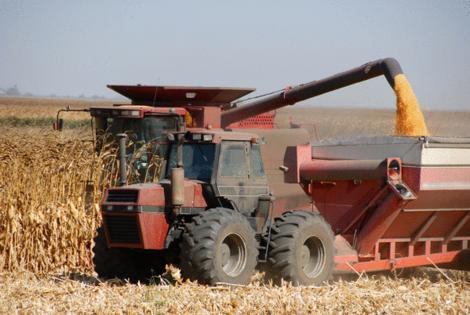White House yet to release sustainable jet fuel tax credit rules; corn farmers eager to mix in ethanol
Published in Business News
A month after industry officials expected its debut, a small formula for analyzing sustainable jet fuel's carbon footprint — one that could potentially reverberate across farm country — is still under wraps.
The Biden administration wants billions of gallons in airline fuel made from biofuels, such as corn ethanol. The 2022 Inflation Reduction Act created a tax credit for sustainable airline fuel, at $1.25 per gallon. But the law left federal authorities to determine the analysis for which fuel-stocks could capture those lucrative credits.
At the end of March, the industry is still waiting.
"We would really like for that similar methodology to be the Argonne [Laboratory] GREET model," said Brian Werner, executive director of the Minnesota Biofuels Association, referring to a model developed by the national laboratory in Illinois that has been embraced by ethanol proponents. "The delay here has been caused by questions about indirect land use change and how you incorporate climate-smart agriculture in the model."
The wait-and-see game has also raised anxiety in rural Minnesota, where corn farmers and ethanol plants have looked to sustainable aviation fuel (SAF).
Often championed by Gov. Tim Walz or U.S. Department of Agriculture Secretary Tom Vilsack on his visits to the corn belt, SAF is believed to be the next evolution in the local fuels movement that has poured money into Minnesota's rural economy over the last decades.
"SAF is really exciting because the customer is coming to us and looking for the cleaner burning fuel," said Richard Syverson, a corn farmer and ethanol plant owner from western Minnesota. "We don't have to convince them of our merits. We just have to make sure we qualify for the tax credit."
But it's not so certain anymore just what type of corn will or won't count under the new tax credit.
Last December, the Treasury Department announced that the Internal Revenue Service would initially employ a life-cycle analysis comparable to the GREET method, a decision cheered by a group of airline companies, including Delta.
But environmental groups, such as the Sierra Club, have criticized the GREET model for not fully accounting for land use.
...continued
©2024 StarTribune. Visit at startribune.com. Distributed by Tribune Content Agency, LLC.







Comments